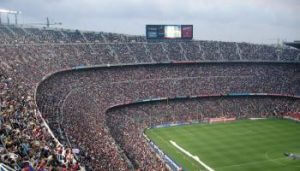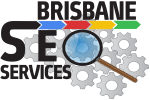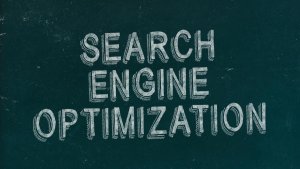How SEO Works
SEO Definition
“Search engine optimization (SEO) is the process of affecting the online visibility of a website or a web page in a web search engine’s unpaid results—often referred to as “natural”, “organic”, or “earned” results. In general,

the earlier (or higher ranked on the search results page), and more frequently a website appears in the search results list, the more visitors it will receive from the search engine’s users; these visitors can then be converted into customers.”
Search
SEO starts with a search.
A user, or for businesses, a potential customer goes to their favourite search engine (usually Google) and types in a keyword or phrase, even a question.
The keyword or phrase carries the intent of the user. Intent being to find information, a product or service.
The Engine then takes that query, and runs it through a database of collected information. That information contains, links to pages, their descriptions, titles, and where they are positioned in a hierarchical list of other pages using that keyword or phrase.
The search engine is attempting to answer the intent of the search by the person. Trying to match the information in it’s databases with the best response and display that in a list.
This list showing the result of the search, in supplying possible answers to the persons query has created a set of results from data that the engine has found or has been submitted to it for indexing.
Optimisation
Or How do I get my site found
The last part of how SEO works is Optimisation.
Optimisation is taking your page, your website, the content, images and information and putting it together in a way that both potential customers and the Search Engines can understand and use.
The best way to design and build for web pages is having content that makes sense, is easy to read for people, contains the message and information you want to convey and has a suitable call to action.
Site Speed
The time it takes for a page to load, and not just fully load. How the content above the fold loads, how was it is first drawn all have an impact on how the page is ranked. As a general rule of thumb, you have 3-5 seconds from the time a person lands on your page to get their attention and get your message across. Otherwise they hit the back button and go elsewhere.
And one of the most important parts of your page and the content is
Keywords
The keywords or phrases you choose to use on your page help determine how your web page is ranked in search and how it is found when potential customers enter search terms.
Keywords can be one word or a phrase or several words together. One of the best ways to get a higher conversion, people who are actually interested in what you are specifically doing is to use Long tail Keywords.
For instance ‘Omelette’ as a single keyword returns a wikipedia entry, a few recipes and Local Search results for restaurants and a search volume of about 3600 per month.
‘How to make an Omelette” returns a highlight box from a website with instructions, mostly recipes, no local search, videos and a search volume of 8100 per month.
The second query is a long tail keyword, it is much more specific and has more information about what the users intent is. People and potential customers using long tail keywords tend to be higher converting. This means they already have done their research know what an Omelette is and are ready to make one, or at least learn to.
Making It Work
How SEO works.
A person/potential customer goes to a search engine, they type in a keyword, phrase or question and the search engine, goes through its database looking at all the pages that use that keyword, how relevant that use of the keyword is to the search query and how that page has been assessed, load speed, location, links from the back and too it, and returns a list for the user to go through.
The top three organic results get more clicks then the results combined. This means those three positions have over 50%* of people seeing and click on them.
This is ideally where you want to be with your keywords and in search results. Achieving this however is harder than just getting everything correct for your page.
You have to remember that your competitors also want to rank as highly as possible for those keywords too. So the competition on popular keywords can be so intense sometimes that the return on investment can be difficult to achieve.
This is where knowing how SEO works, and how other keywords and phrases used in your industry by potential customers can be important. The more specific, the more likely a person is to convert when landing on your page from a search result.
This leads into a discussion about the buying cycle, customers and touch points. Something I will write about soon.
Thank you for reading and I hoped this helped as a small introduction to how SEO works.
* https://www.advancedwebranking.com/ctrstudy/



